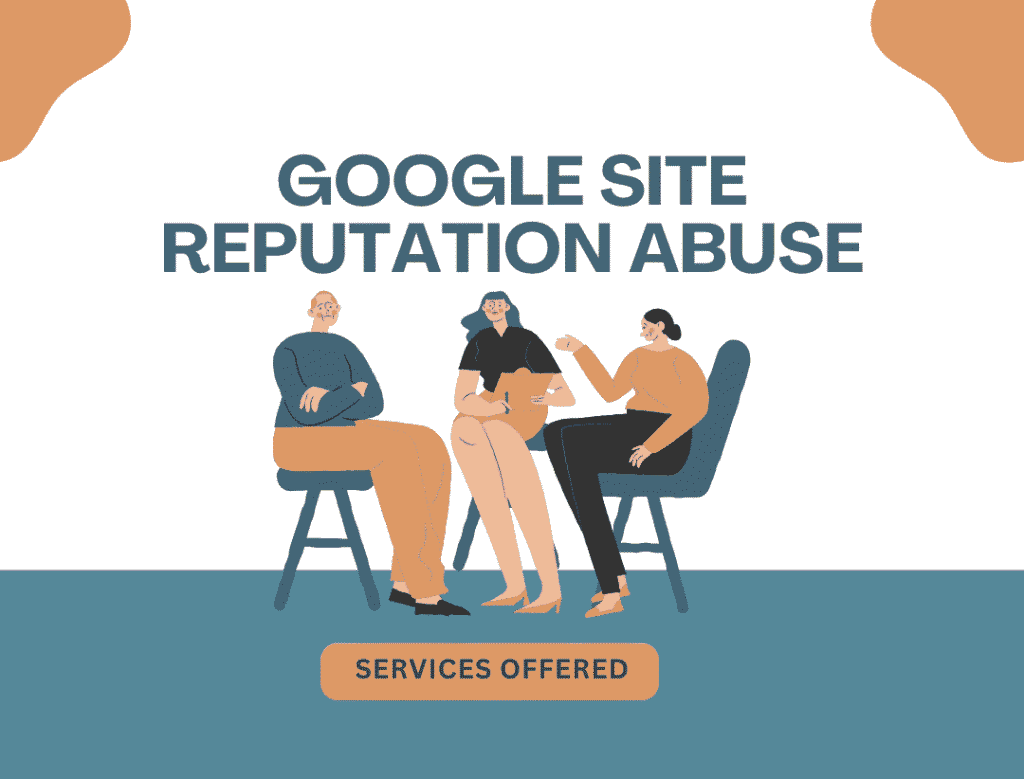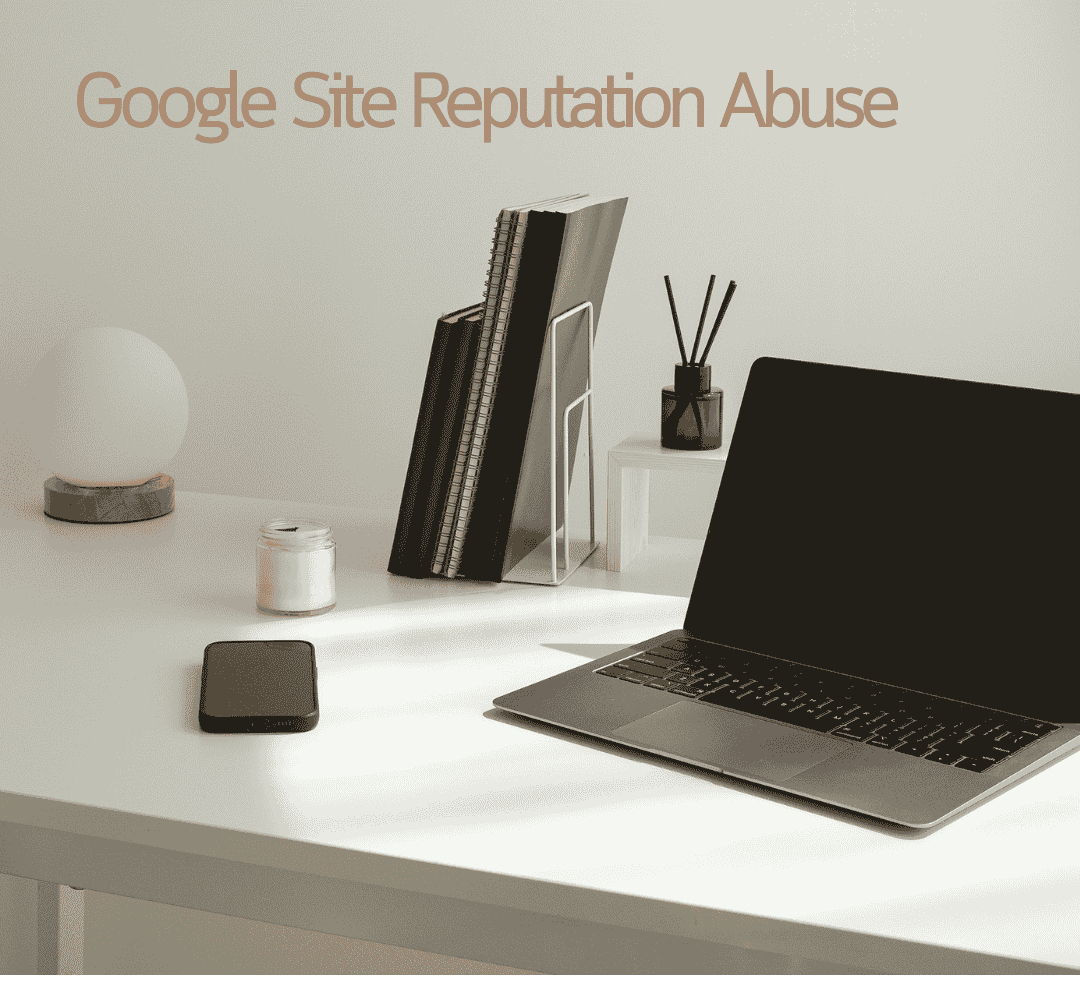Recently, Google introduced a rule to stop something called “site reputation abuse.” Many site owners were confused, so Google published answers to common questions.
This issue happens when trusted websites start posting low-quality or unrelated content. Often, others write these posts—not the site owner. The goal is usually to earn money or build links.
Here’s a simple breakdown to help you understand and fix this problem.
What Is Site Reputation Abuse?
It’s when well-known websites publish content that doesn’t match their usual topics. Often, outsiders write these articles. These posts try to rank high in Google using the site’s good reputation.
But if the content is unhelpful or misleading, it harms the site’s trust and user experience.
Common Types of Site Misuse
| Abuse Type | What It Means | Why It’s a Problem |
| Paid Guest Posts | Sponsored posts with little value | Lowers site trust |
| Expired Domains | Old domains reused for new SEO content | Google may flag them |
| Link-Based Posts | Articles made only to add backlinks | Seen as spam by Google |
| Spammy Subdomains | Weak posts on sub-pages | Hurts main site reputation |
| Affiliate Junk Posts | Low-quality partner content | Makes the site look shady |
How Google Detects It
Google uses both technology and human review. They check for sudden topic shifts or repeated low-quality posts. User reports help them too.
If they find abuse, the site might get a penalty.
What Should You Avoid?
To protect your site, don’t do these things:
- Accept guest posts that aren’t helpful
- Post reviews or articles that don’t match your topic
- Add posts only for backlinks
- Forget to mark paid content clearly
These actions can bring down your site’s trust.

How to Fix These Issues
If your site has been flagged or feels off, take steps now:
- Review all guest and sponsored content
- Remove off-topic or thin posts
- Use tags like rel=”sponsored” for paid links
- Create better content rules for guest authors
- Check Google Search Console for alerts
This helps rebuild your site’s trust and SEO value.
SEO Strategy After This Update
If your SEO plan used tricks like weak guest posts or paid links, it’s time to shift. Focus on quality:
- Create real, useful content
- Answer common reader questions
- Make sure your site is mobile-friendly
This approach builds lasting growth and strong rankings.
Steps to Stay Safe in the Future
- Write content for real people
- Don’t post off-topic articles
- Review guest posts carefully
- Mark sponsored content clearly
- Clean out old or low-value posts
- Check your site’s content every few months
These habits help you stay in line with Google’s rules.
Why Bad Content Can Be Risky
If you keep low-quality posts on your site, these things can happen:
- Google may stop ranking your pages
- Brands might avoid partnerships
- Readers could lose trust in your site
So, take time now to improve your content before it hurts your traffic.
Tips for High-Quality Content
Here are ways to create content that helps you grow:
- Stay on topic with every post
- Make sure your facts are accurate
- Don’t use tools that write content for you
- Share real opinions and experiences
- Hire writers who understand your topic well
These tips help you build trust and traffic over time.
Helpful Tools to Use
Try these tools to keep your site healthy:
- Ahrefs – Check backlinks and keyword issues
- Semrush – Run audits and track SEO progress
- Moz – Get site health suggestions
- Sitebulb – Find technical problems in your content
These tools make content cleanup easier.
Final Thoughts: Keep It Clean and Honest
Google’s new update is here to improve web content. If your site has been using quick tricks, now’s the time to stop. Focus on writing helpful, real posts.
Make sure everything you publish gives value. Don’t post just for clicks. Earn trust by being clear and honest.
Clean your site, review old content, and stay focused on quality. That’s the best way to build traffic that lasts.
Why Real Value Matters More Than Ever
Right now, Google cares more about quality than ever before. This means every piece of content on your site should offer something useful. It might answer a question, explain a topic clearly, or help someone solve a small problem. If your article doesn’t help the reader, Google will not favor it.
That’s why it’s risky to post content written only for SEO tricks. Even if it ranks for a short time, it won’t last. Search engines want pages that help people, not just attract them. So, take time with each post. Use simple words, make your message clear, and stay on topic.
You don’t need to be perfect. But you do need to care about your readers. If your site becomes a trusted source, it will grow faster and avoid penalties. That’s the safest and smartest way to build a lasting online presence.
Frequently Asked Questions
Why did Google change the rules?
Because too many trusted sites were sharing low-quality or spammy posts. It hurt users, so Google stepped in.
Can I still accept guest posts?
Yes. But the posts must be helpful and related to your topic. Don’t allow posts that just link to other websites.
Can one weak post ruin my site?
One bad post might not cause problems right away. But if there are many, Google may notice and lower your rankings.

I’m impressed, I have to say. Actually hardly ever do I encounter a blog that’s each educative and entertaining, and let me tell you, you may have hit the nail on the head. Your idea is excellent; the difficulty is something that not sufficient persons are speaking intelligently about. I’m very completely satisfied that I stumbled across this in my search for something relating to this.